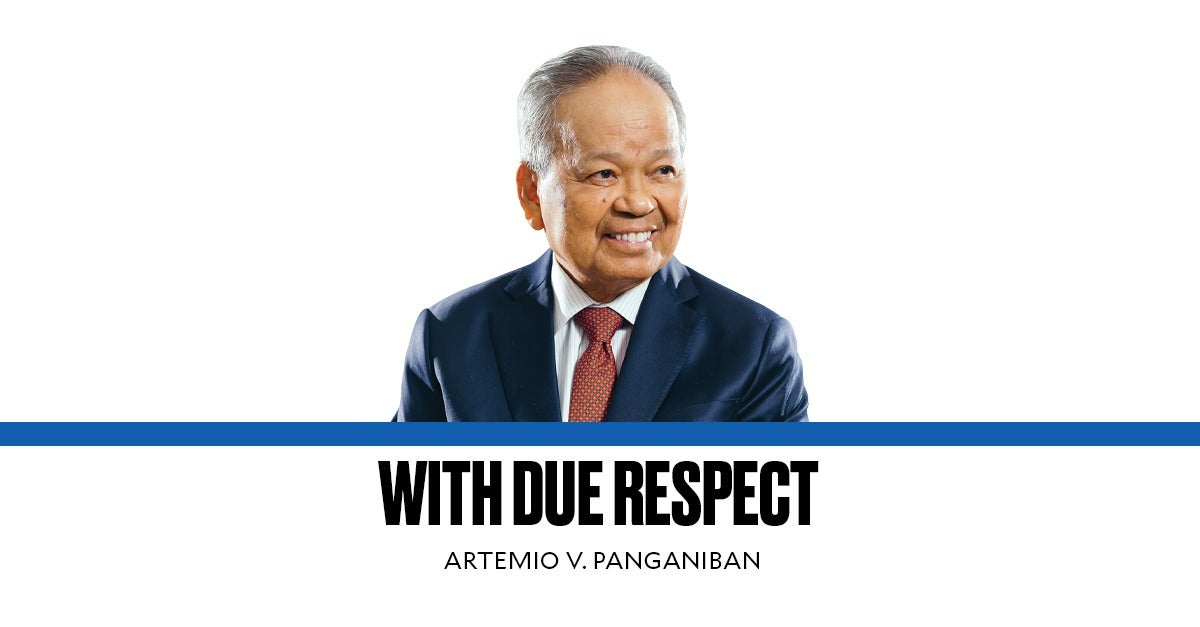KP: Nobly aimed, constitutionally flawed (1)

Essentially, “connectivity” refers to the capacity to be linked and to transmit voice and data to and from computers, mobile phones, and similar devices via Wi-Fi, the internet, data, and other modern transmission facilities. It seamlessly enables individuals, families, communities, and nations to exchange knowledge at lightning speed to improve their economic, social, medical, health, political, and familial well-being.
I RESPECTFULLY COMMEND CONGRESS for trying to craft the Konektadong Pinoy (KP) bill, which is nobly intended to empower our people, particularly those living in rural and far-flung areas, to enjoy the benefits of connectivity that are available to and sometimes taken for granted by dwellers in cities and urban areas. I cheer our lawmakers for promoting inclusivity in connectivity and for seeking the “narrowing of the digital divide in the country through the development of data transmission infrastructure and removal of barriers to competition in data transmission services.”
As presently worded, however, I believe the KP will not pass constitutional scrutiny and should be revised. Otherwise, its noble aims would be frustrated by the Supreme Court for transgressing the basic safeguards that were precisely instituted to protect our people. Why?
FIRST, ARTICLE XII, SECTION 17 OF THE CONSTITUTION grants the State the authority, in times of national emergency, to take over or direct the operations of any privately owned public utility or business affected with public interest. It is designed to ensure that the government retains the ability to act swiftly and effectively in critical situations to safeguard the national welfare.
The KP, however, permits foreign-based data transmission industry participants, including those using satellite technology, to operate in the Philippines without establishing any physical infrastructure or operational facilities here. This effectively creates a class of critical service providers which, though they operate in our market, remain beyond the reach of Philippine laws and regulatory agencies.
If such entities are allowed to hold key positions in the country’s data ecosystem—yet remain beyond the State’s jurisdictional reach—the constitutional safeguard becomes ineffective. Our government will then be unable to direct or compel compliance with national security and other public interest needs in times of crises. The concern is not merely regulatory; it is existential. Without the ability to assert control in emergencies, the State’s constitutional tools become ceremonial, not functional.
This is not a hypothetical concern. Early this year, during the Russia-Ukraine war, Ukraine’s access to satellite internet services from a foreign provider—crucial to the war effort—was threatened to be cut off unless certain political conditions were met. The stark truth becomes obvious: when critical infrastructure lies beyond a nation’s legal and operational control, its sovereignty can be compromised at precisely the moment it is most needed.
Closer to home, I ask: Should the Philippines entrust its data arteries to entities that will not answer to its courts or be subject to its directives in times of national need? Surely, constitutional prudence counsels against such a gamble.
SECOND, THE KP GRANTS PREFERENTIAL TREATMENT TO SATELLITE OPERATORS. Under its Section 14, these providers may connect directly to broadband networks and use radio spectrum without partnering with local public telecommunications entities. This free connectivity bypasses licensing conditions historically imposed on terrestrial operators and effectively exempts satellite players from obligations others must meet.
The Equal Protection Clause (Article III, Section 1) of the Constitution allows Congress to distinguish between classes. But the classification should be based on substantial differences that are relevant to the law’s purpose. Both satellite and terrestrial entities perform the same essential function—delivering data services to the public. There is no reason why satellite entities should be exempt from the same regulatory oversight.
THIRD, IN ITS SECTION 19, THE KP proclaims a principle of technological neutrality, yet its own provisions depart from that commitment. Technological neutrality entails treating different means of delivering the same service in a similar fashion, unless justified by material distinctions. A law that favors one delivery platform over another, absent a valid rationale, is both internally inconsistent and constitutionally abhorrent.
I agree with the need for improved access and broader competition in the telecommunications sector. But such reform must be compliant with the Constitution, which exists precisely to ensure that long-term policy goals are pursued through lawful, reasonable, balanced, and just means. The challenge for our esteemed legislators, then, is to navigate the shifting landscape of technology without abandoning the steady compass of constitutional order.
(Disclosure: Though I am an independent director of PLDT, I pen this piece as an objective opinion writer.)
(To be continued next Monday.)


















